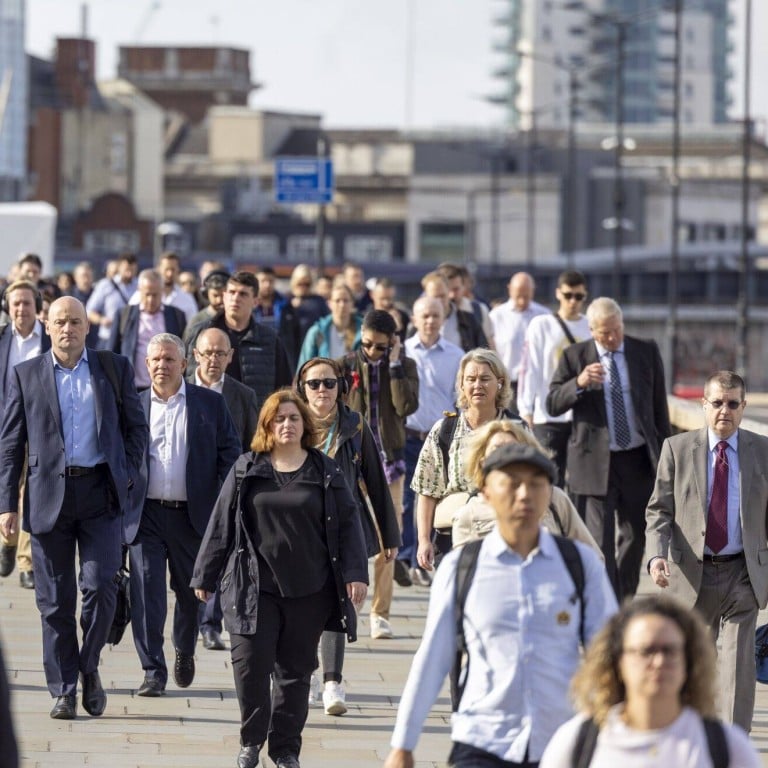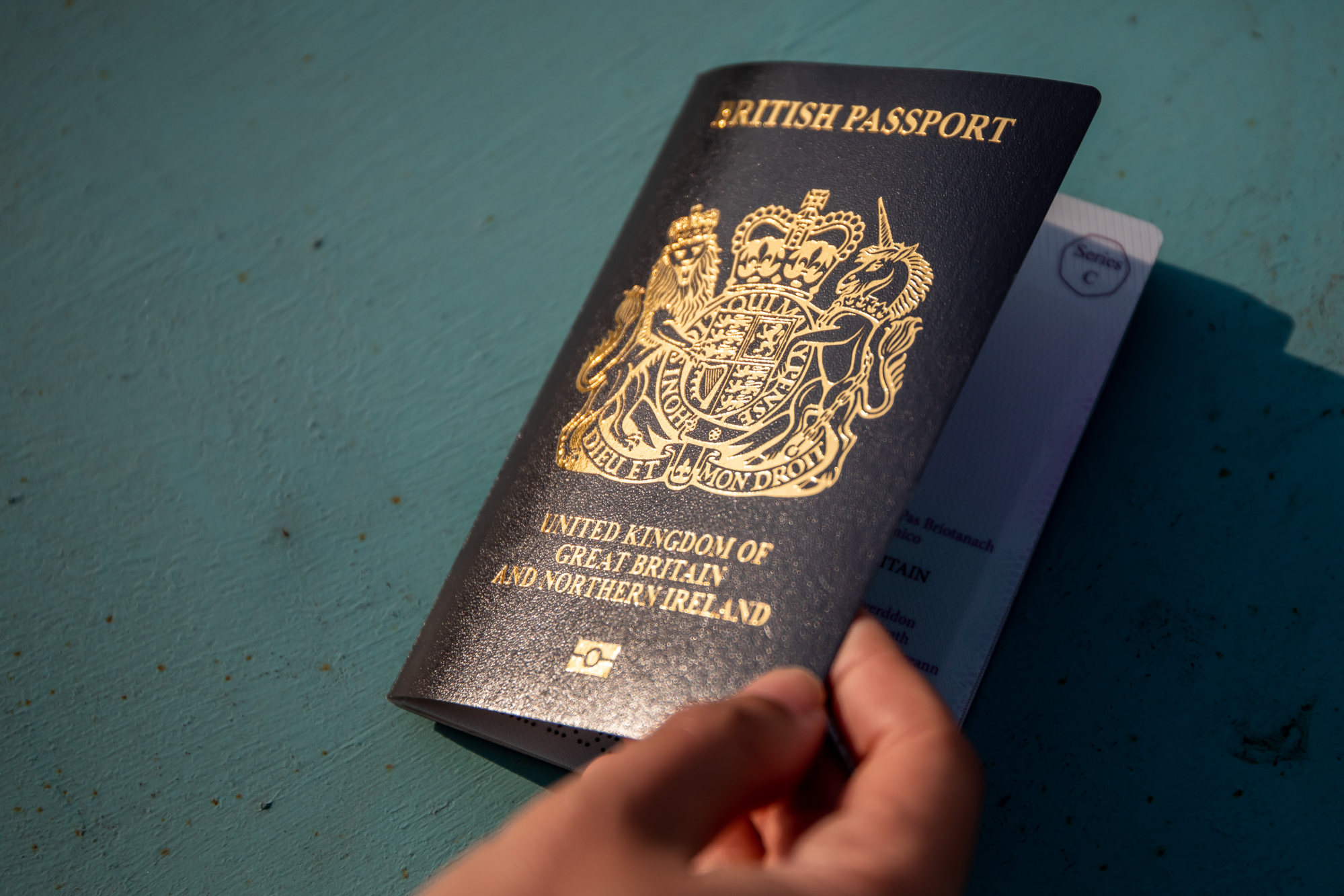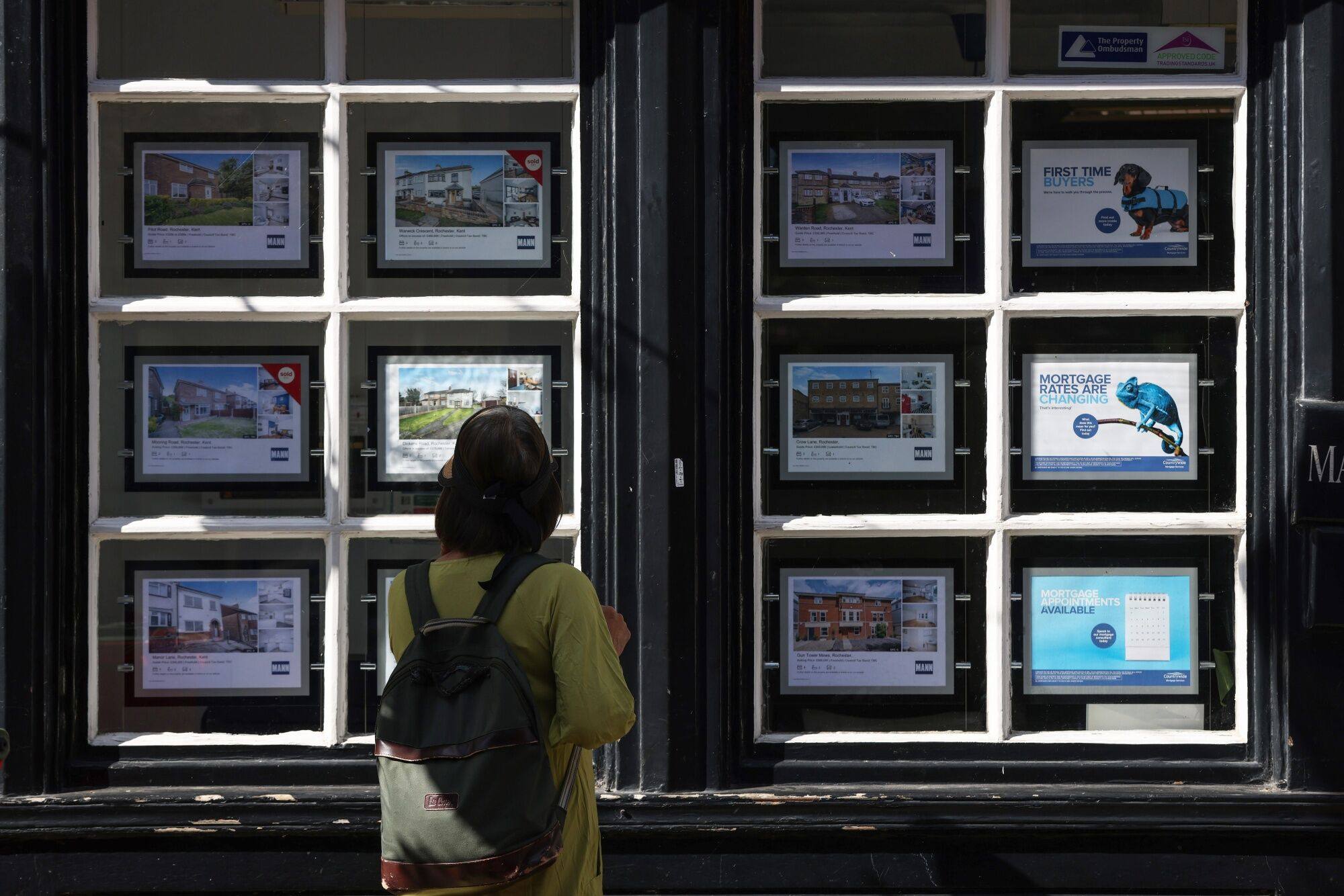Nan Yang
SENIOR MEMBER

- Joined
- May 1, 2010
- Messages
- 5,269
- Reaction score
- 1
- Country
- Location
Only a third of Hongkongers who recently moved to UK found full-time jobs, despite most being highly educated, survey reveals
- ‘Significant’ number of migrants may have had to switch from professional or managerial roles to primary industry or elementary work, survey author says
- Only 2.1 per cent indicate they plan to move back to Hong Kong after obtaining British citizenship
Laura Westbrook
Published: 9:00am, 23 Aug, 2023

Many Hong Kong migrants struggled to make full use of their professional expertise after relocating, according to the survey. Photo: Bloomberg
Only a third of Hongkongers who have moved to the UK in recent years have found full-time jobs, even though most are highly educated, according to a British university survey targeting BN(O) visa holders.
Despite coming from a strong educational background, many migrants struggled to make full use of their professional expertise after relocating, according to the online survey carried out by the University of Liverpool.
The university polled 1,310 Hongkongers, most of whom had moved to the United Kingdom after the imposition of the national security law in 2020.

About 172,500 Hong Kong residents have applied for the visa scheme between its launch in January 2021 and March this year. Photo: Bloomberg
Nearly all respondents were British National (Overseas) visa holders, while less than 6 per cent had entered the country on a student visa, were seeking asylum or held British passports. The survey was carried out between November 1 and December 15 last year and the results were published in June.
Only 30 per cent had found full-time jobs, while 18 per cent were working part time or as freelancers. About 18 per cent were unemployed and 15 per cent described themselves as homemakers.



The survey found 78.4 per cent of all respondents had received a tertiary education, with 30 per cent holding a master’s degree or higher academic qualifications.
Ricci Yue Pak-hong, the author of the study, said the results showed a “significant” number of migrants from the city might have had to switch from professional or managerial roles to primary industry or elementary work.
Jobs that fall under the category include unskilled or semi-skilled work such as cashiers, retail associates and goods delivery.

Yue added that some migrants had become unemployed after they arrived, while others had left the job market altogether to become homemakers.
“This highlights the potential waste of human capital and skills, which will cause inefficiency to the BN(O) visa policy,” Yue said.

He stressed that efforts should be made to ensure migrants from the city were provided with opportunities and supported in their transition.
About 172,500 Hong Kong residents had applied for the visa scheme between its launch in January 2021 and March this year, with 96 per cent – or 166,420 – receiving approval.

Only 30 per cent of Hong Kong migrants have found full-time jobs in the UK, according to the survey. Photo: Bloomberg
The Conservative government introduced the pathway in response to Beijing’s imposition of the national security law, which prohibits acts of secession, subversion, terrorism and collusion with foreign groups.
An estimated 5.4 million people out of the city’s population of 7.5 million are eligible for the scheme, which allows successful applicants and their dependants to live, work, and study in Britain for up to five years, after which they can apply for citizenship.
Survey respondents cited political reasons as the most significant factor influencing their decision to leave the city, with 98 per cent pointing to concerns over freedom of assembly and speech, as well as trust in the government.
Hongkongers aged 30 to 49 made up 58 per cent of the respondents, while those who were 29 years or younger accounted for 13.2 per cent.
There were also more women than men across all age groups, with the ratio being 75.5-100.
About 72 per cent were married or cohabiting, and more than half had children. Around two-fifths moved to Britain with at least one family member.
The survey found 23.4 per cent of Hongkongers lived in the southeast of England, followed by 22 per cent in London and 17 per cent in northwest England.
It also found that most Hong Kong communities were clustered around major cities such as London and Reading in the southeast of England. They had also settled in Liverpool, Manchester and neighbouring Warrington.
The top three cities most migrants live in are London, Reading and Manchester.
Author Yue said this was not the first emigration wave from Hong Kong triggered by fears over Beijing, as about 300,000 people left the city after the Tiananmen Square crackdown in 1989. But hundreds of thousands returned after securing foreign citizenship.
When the migrants were asked whether they intended to return to the city permanently in the foreseeable future, 61 per cent said they had no intention of doing so.
Only 2.1 per cent said that they had plans to move back to Hong Kong after obtaining British citizenship.
Yue said the figure indicated that the recent emigration wave was different from previous ones as only a small portion of migrants were planning to return to Hong Kong in the foreseeable future.

Laura Westbrook
Laura Westbrook is a correspondent covering Hong Kong. Prior to joining the Post, Laura was a reporter, presenter and senior producer at BBC World News in London. She has also worked as a news reporter in Hong Kong and New Zealand.
